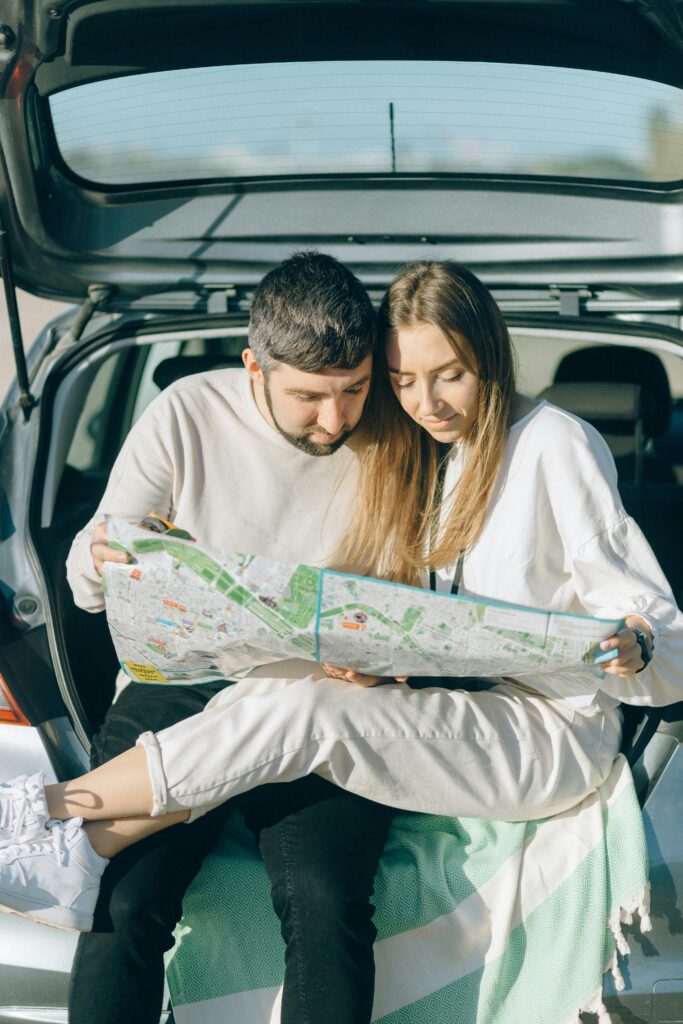Planning the Perfect RV Road Trip Itinerary
Embarking on an RV road trip is an exciting way to explore scenic destinations, experience new adventures, and create lifelong memories. However, a successful trip requires meticulous planning to ensure smooth travel and maximum enjoyment. Here’s a comprehensive guide to help you plan the perfect RV road trip itinerary.

- Define Your Travel Goals
Choose Your Destination
- Decide whether you’re exploring national parks, coastal routes, or small towns.
- Consider the climate and season when picking your destination.
Set Trip Duration
- Determine how long your trip will be to map out feasible stops.
- Allocate extra time for unforeseen delays or spontaneous detours.
- Research Your Route
Use Navigation Tools
- Leverage RV-friendly apps like RV Life or Roadtrippers for route planning.
- Plan routes that accommodate RV sizes to avoid restricted roads.
Plan for Fuel Stops
- Identify gas stations along your route, especially in remote areas.
- Use apps like GasBuddy to find the best fuel prices.
Check Road Conditions
- Monitor weather forecasts and road closures.
- Avoid steep gradients or narrow roads that may be challenging for an RV.
- Budget Your Trip
Estimate Costs
- Factor in fuel, campground fees, food, and activities.
- Include a buffer for emergencies or unexpected expenses.
Save Money
- Look for discounts through RV clubs like Good Sam or Passport America.
- Consider free camping options like public lands.
- Book Campgrounds in Advance
Research Campgrounds
- Use online reviews and resources to find highly rated RV parks.
- Check for amenities like hookups, Wi-Fi, and laundry facilities.
Secure Reservations
- Book early, especially during peak travel seasons.
- Confirm pet policies if you’re traveling with furry companions.
- Plan Activities and Stops
Highlight Points of Interest
- Identify must-see landmarks and attractions along your route.
- Plan for rest days to relax and explore local culture.
Incorporate Outdoor Adventures
- Include hiking trails, kayaking spots, or scenic viewpoints.
- Check for activity permits if required.
- Pack Smartly
Create a Checklist
- Include essentials like clothing, toiletries, and camping gear.
- Pack RV-specific items like leveling blocks, sewer hoses, and water filters.
Stock the Kitchen
- Plan meals and stock up on non-perishable food items.
- Bring portable cooking tools like a grill or camp stove.

- Ensure RV Readiness
Conduct Maintenance
- Check tires, brakes, and fluid levels before departure.
- Test all RV systems, including the generator and propane tanks.
Carry Tools and Spare Parts
- Pack a basic toolkit for minor repairs.
- Include spare fuses, hoses, and other essential parts.
- Prioritize Safety
Emergency Preparedness
- Carry a first aid kit and emergency contact numbers.
- Know the location of the nearest medical facilities along your route.
Stay Connected
- Use a mobile hotspot or campground Wi-Fi to stay online.
- Share your itinerary with friends or family for added safety.
- Be Flexible
Adapt to Changes
- Embrace unexpected detours or delays as part of the adventure.
- Keep alternative campgrounds or routes in mind.
Allow for Spontaneity
- Leave room in your schedule for unplanned stops or activities.
- Enjoy the freedom of RV travel by going off the beaten path.
- Enjoy the Journey
Document Your Trip
- Take photos and videos to capture special moments.
- Keep a travel journal to record memories and highlights.
Engage with Fellow Travelers
- Connect with other RV enthusiasts at campgrounds or events.
- Share tips and stories to enrich your RVing experience.

Planning the perfect RV road trip itinerary requires a balance of preparation and flexibility. By defining your goals, researching routes, budgeting wisely, and staying open to new experiences, you can create a memorable journey that’s both stress-free and fun. With the open road ahead, your next great adventure awaits!
